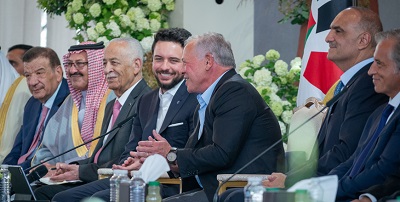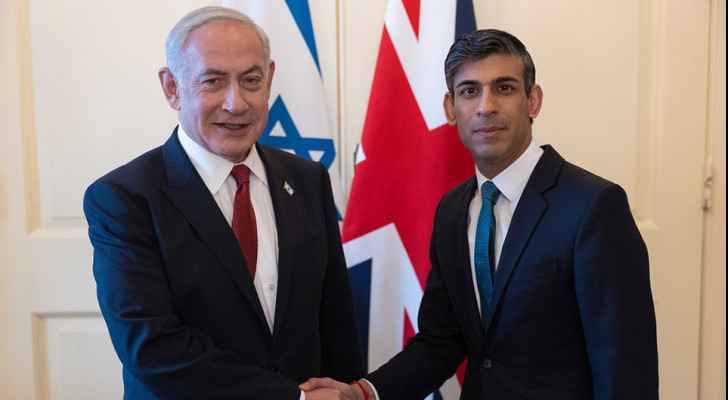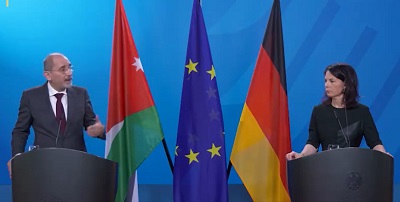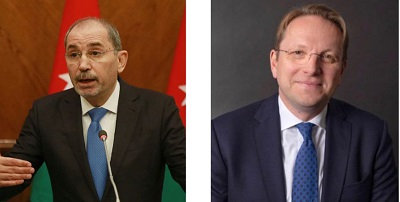Libya and the Army's Popular Mandate - By Jebril Elabidi, Asharq Al-Awsat
The Libyan people responded positively to Commander of the Libyan National Army Marshal Khalifa Haftar’s call for tasking the army with ruling the country and dissolving the Presidential Council after the Sukheirat Agreement had failed. After large protests broke out in major Libyan cities, the statements released by the tribes, including the Ashraf and Murabitin tribes, were bold in demanding that the army be allowed to run the country's affairs.
Libyan cities and tribes also mandated the army to lead the country by organizing protests and releasing statements, while activists launched the hashtag about the matter a moment after Haftar’s televised speech ended.
Mandating is the assignment of authority or responsibility, which means a transition and handing over of power, and insofar as the mandate is popular, it is as legitimate as a referendum, especially after the so-called Sukheirat Agreement and its outcomes failed, including the State and Presidential Councils. Both of these institutions failed to represent Libyans after turning into a front for pro-political Islam groups. All of this pushed many to mandate the military institution to maintain the security of the country after losing hope in politicians.
Haftar, said: “This tragic situation that has taken the people’s suffering to its peak leaves no choice in front of the honorable Libyan people but to declare the dissolution of the so-called political agreement and the gang that is the Presidential Council. You need to immediately decide to mandate the institution that you find competent to lead in the coming phase, under a constitutional announcement that sets the stage for the construction of a civil state and armed forces that guarantee the safety of your choices”.
After corruption and looting of public funds reigned, described by the former UN envoy to Libya, Ghassan Salame, as unprecedented, and after governments failed, especially the Government of National Accord that the Commander of the Libyan Army described as “a treacherous Presidential Council and a mercenary for bringing the Turkish army”, Libya, which lacks a clear and mature political leadership, is awaiting the success of a democratic project under democratic illiteracy. It accepts outcomes with the presence of opportunistic and ideological militias and the dominion of extremist groups affiliated with the Muslim Brotherhood and al-Qaeda, and even remnants of ISIS; the situation has become surreal.
What is most pressing now is taking back the sovereignty of the Libyan state from terrorist groups. After that, talk about a viable democratic project under national sovereignty achieved by the National Army becomes plausible.
The Libyan crisis is essentially a security crisis, so continuing to address it with a political process is schizophrenic, and a form of political futility and luxury. This is why all political solutions have ended with failure, and perhaps Sukheirat is the most recent.
All current political bodies have offended the state and the Libyan people through inadequate policies, some of which amounted to treason, such as bringing foreign mercenaries and paying them with the money of the Libyan people to fight the Libyan people, or conjuring agreements that undermine Libyan borders and resources like the unconstitutional Government of National Accord. All of these ignited the popular movement in Libya and pushed for mandating the Libyan army to run the country for a transitory period until the atmosphere is suited for a free election without the terrorism and dominion of militias.
Mandating the Libyan army will not lead to fear of military rule, the Libyan army’s message is clear and honest: There is no authority over the army except an elected authority, and the Government of National Accord is not elected, it is a product of a fait accompli and is therefore rejected by the people themselves, before the army.
The Libyan people are not afraid of mandating the army, it is a disciplined military institution that believes in the civil state and not stratocracy. It is a national military institution that will protect civil elections and ensure the rebirth of a Libyan state.
Latest News
 King from Mafraq: Jordan’s security, sovereignty above all considerations
King from Mafraq: Jordan’s security, sovereignty above all considerations Sunak tells Netanyahu to “allow calm heads to prevail”
Sunak tells Netanyahu to “allow calm heads to prevail” Safadi, Germany’s Baerbock discuss war on Gaza, regional escalation
Safadi, Germany’s Baerbock discuss war on Gaza, regional escalation FM, EU commissioner discuss development cooperation, regional de-escalation
FM, EU commissioner discuss development cooperation, regional de-escalation Jon Stewart unpacks Iran launching missiles at Israel
Jon Stewart unpacks Iran launching missiles at Israel
Most Read Articles
- Dubai reels from floods chaos after record rains
- Security Council to vote Thursday on Palestinian state UN membership
- Khasawneh, Saudi Shura Council speaker discuss bilateral ties, regional developments
- King, Bahrain monarch stress need to maintain Arab coordination
- Hizbollah says struck Israel base in retaliation for fighters' killing
- Tesla asks shareholders to reapprove huge Musk pay deal
- The mystery of US interest rates - By The mystery of US interest rates, The Jordan Times
- Princess Basma checks on patients receiving treatments
- Jordan will take down any projectiles threatening its people, sovereignty — Safadi
- Knights of Change launches nationwide blood donation campaign for Gaza